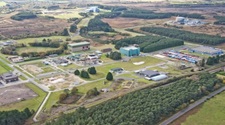
The Winfrith Nuclear Site was a major part of the UK's nuclear research capability for several decades, with eight experimental reactors and related facilities located in an environmentally valuable area of heathland in Dorset. About half of the site has been released for use as a business park. The rest is being decommissioned and will be one of the earliest of the Nuclear Decommissioning Authority (NDA) sites to be completely cleared. Quintessa has been supporting the site's operator, Research Sites Restoration Limited (RSRL), to develop a detailed description of the target End State for the restoration of the site, using a systematic and consultative options study. Full Details
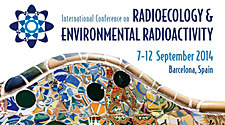
Laura Limer and Russell Walke participated in the Third International Conference on Radioecology and Environmental Radioactivity (ICRER) held in Barcelona, bewteen 7th-12th September 2014. The conference was promoted and organised by IRSN and the NRPA and there were in the region of 450 participants. A wide range of issues concerning environmental radioactivity were discussed, with sessions on: multi-stressors and effects; risk; emergency preparedness; speciation and transfer; waste; NORM; environmental protection; extreme environments; monitoring and metrology; and nuclear legacy. Full Details
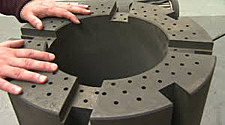
As reported by the BBC on 6th October 2014 new cracks have been found in one of the nuclear reactors at the Hunterston B nuclear power station in North Ayrshire. Hunterston B is one of the UK's Advanced Gas Cooled Reactors, operated by EDF Energy.
There are about 3,000 graphite bricks in the core of each reactor. The bricks are roughly cylindrical in shape and are hollow; the inner bore is where the nuclear fuel is placed (see image). The bricks are held together by a number of keys and keyways to maintain the overall integrity of the core. ... Full Details
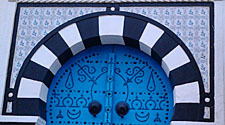
The International Atomic Energy Agency (IAEA) supported a regional workshop on the management and safe disposal of radioactive waste for nuclear regulators in Tunis in March 2014. The week-long workshop provided lectures and a forum for discussion for 30 participants from 24 countries involved in the Arab Network of Nuclear Regulators (ANNuR) and the Forum of Nuclear Regulatory Bodies in Africa (FNRBA).
Russell Walke was one of two experts invited to give lectures and support exercise and discussion sessions covering a wide range of topics concerning... Full Details
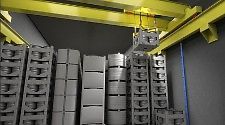
In a study of the potential post-closure performance implications of non-encapsulated wastes in standard RWMD containers, Quintessa identified that non-encapsulation of wastes might reduce the barrier performance of cementitious backfill due to formation of voids and collapse structures in the backfill. Working as part of the ASSIST consortium, Quintessa led a follow-on project to quantify the amount the amount of voidage in an ILW/LLW Geological Disposal Facility (GDF), and how this is affected by non‑encapsulation of wastes. ... Full Details
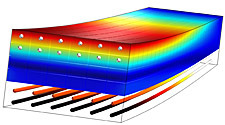
In order to provide the best possible service to our clients, Quintessa recently invested in a licence for COMSOL Multiphysics® and a number of add-on modules. The capabilities of Quintessa's in-house multiphysics code QPAC and COMSOL Multiphysics® are complementary and provide a broad, robust basis for all aspects of complex coupled modelling and use of innovative, non-standard physical process models.
Initial applications for COMSOL Multiphysics® at Quintessa are related to sophisticated structural mechanics, with a particular focus ... Full Details
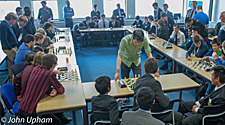
The final of the national secondary schools Team Chess Challenge competition was held at Imperial College on Wednesday 23rd April 2014. The tournament was won by The Manchester Grammar School. During the day the current British Champion, David Howell, played ten teams of four students simultaneously and impressively defeated nine of them.
The tournament was created and organised by Neil Cooper, a mathematics teacher at Wilson's School, and sponsored by Quintessa in recognition of the contribution that chess plays in developing strategic thinking skills among young people. Full Details